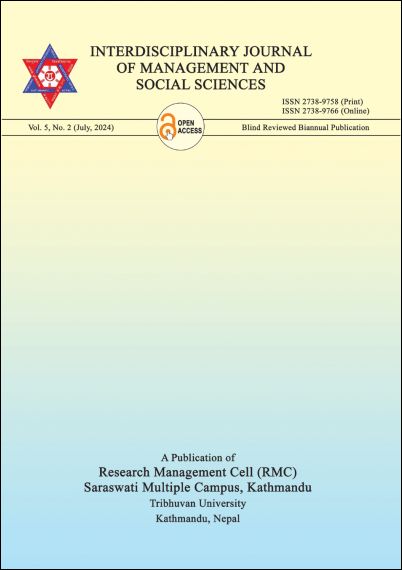Culturalism in Disturbing Current Drama
DOI:
https://doi.org/10.3126/ijmss.v5i2.69463Keywords:
Bad traditions, folk beliefs, cultural customs, social behavior, social harmonyAbstract
The research article explores how culturalism is depicted in Veda Kumari's play "Disturbed Present" (2058). The culture of Nepali society as expressed in the play is analyzed through both the dimensions of dramatic events and stage direction. Using a deductive research method and based on the theoretical concepts of culture and culturalism, the study examines the inherent cultural elements in the dramatic narrative and the reflected cultural aspects in stage direction. Primary and secondary sources have been collected to study and analyze the underlying culture in dramatic narratives, including lifestyle and popular beliefs, cultural concepts and behaviors related to women, class-differentiated cultural concepts, political behaviors and concepts, the use and behavior of folk songs, and socio-cultural customs. These materials are organized in an explanatory and analytical manner. The article focuses on the cultural behavior of Nepali society portrayed in the play, concluding that the cultural expression of Nepali society is strongly conveyed through both the dramatic narrative and stage direction in disturbed present.
Downloads
Downloads
Published
How to Cite
Issue
Section
License

This work is licensed under a Creative Commons Attribution-NonCommercial 4.0 International License.

